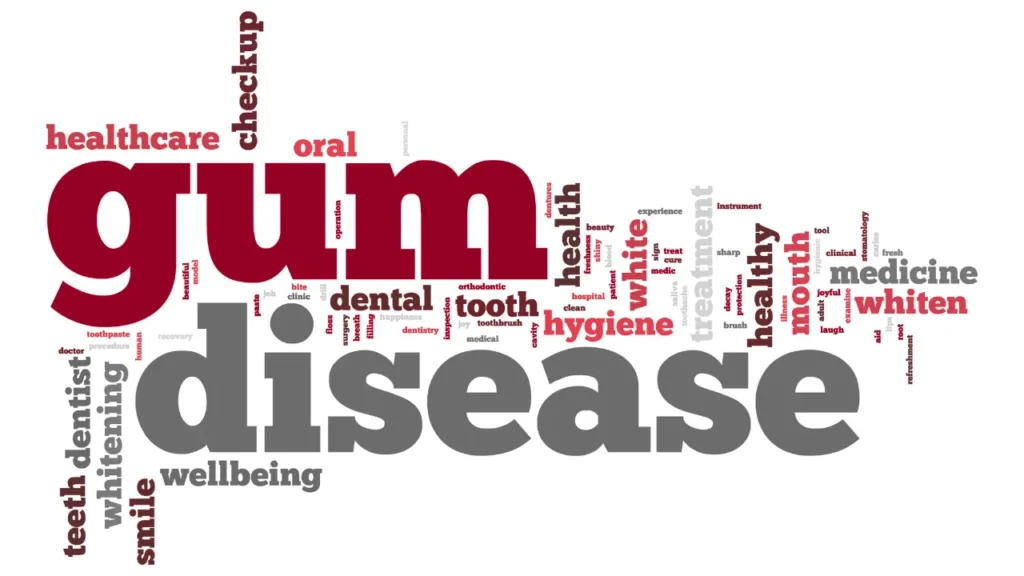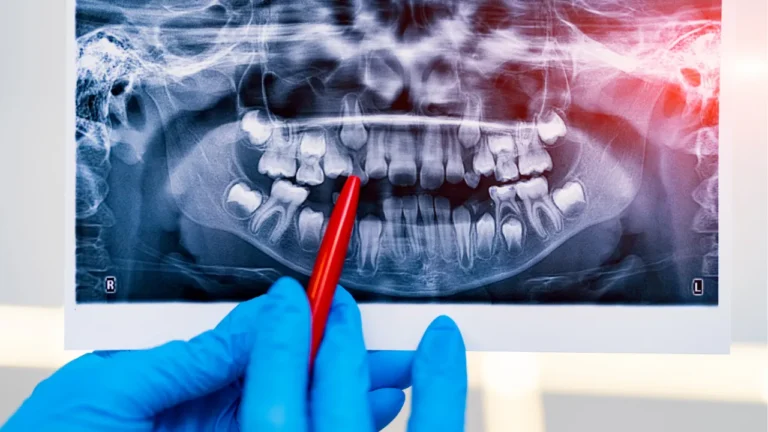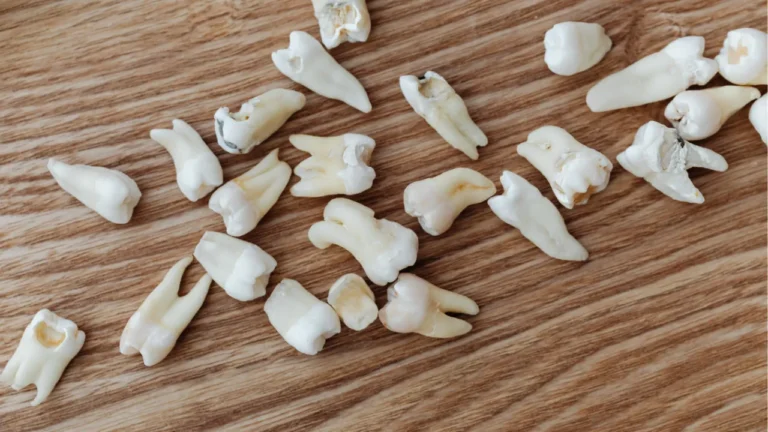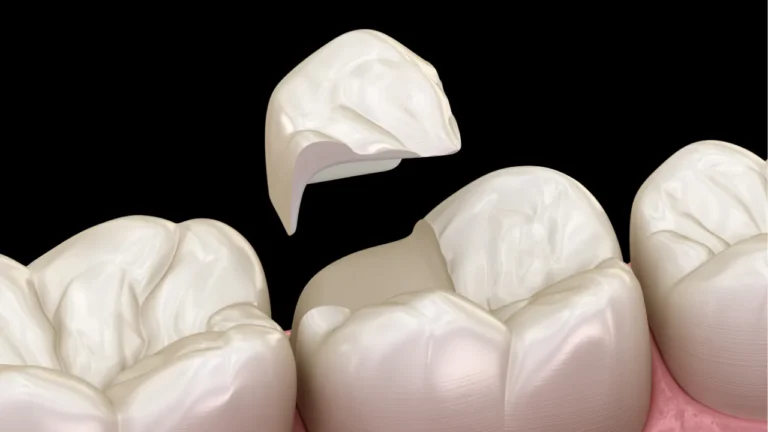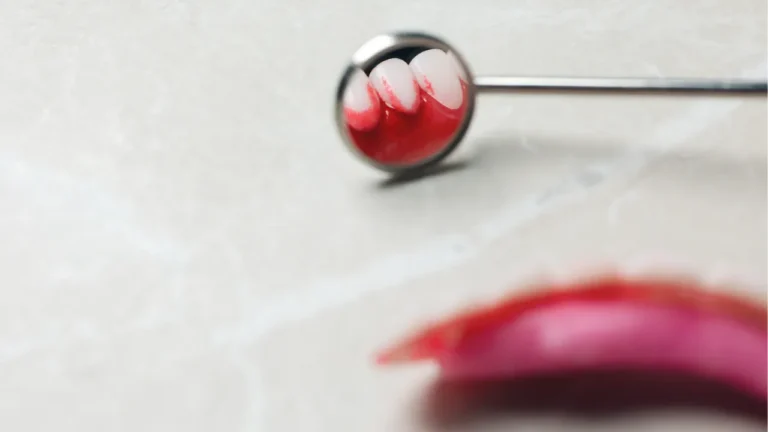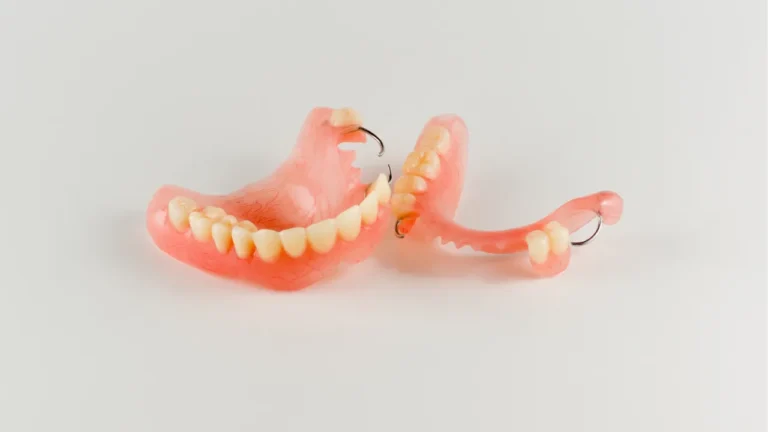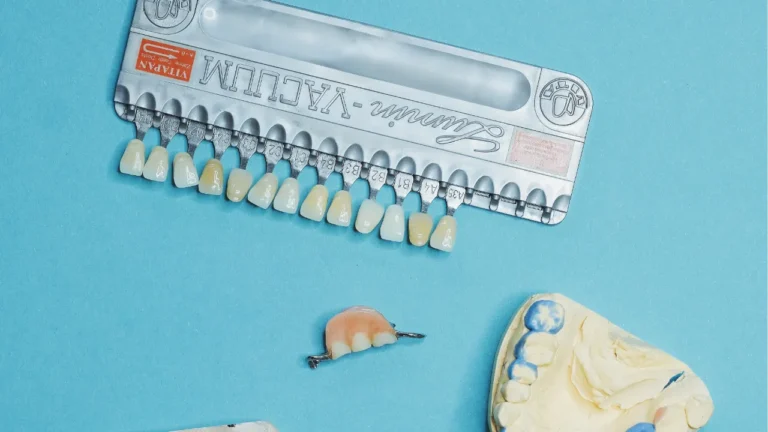The best way to prevent gum disease is through daily brushing, flossing, regular dental check-ups, and a healthy lifestyle — these simple habits protect your gums from inflammation and infection.
Gum disease often starts silently but can lead to serious problems like tooth loss if left untreated.
Taking care of your gums is just as important as caring for your teeth — and it starts with a few easy steps you can build into your routine.
Quick Summary
- Prevention: Brush twice daily, floss once daily, visit your dentist regularly, eat a balanced diet, avoid smoking.
- Warning Signs: Bleeding, swelling, bad breath, gum recession, loose teeth.
- Why It Matters: Healthy gums protect your teeth and support your overall health.
Why Gum Health Matters
Your gums support and protect your teeth. When gums are healthy, they form a tight seal around your teeth and keep harmful bacteria at bay.
But when plaque builds up along the gumline, it can lead to inflammation — the first stage of gum disease.
What Is Gum Disease?
Gum disease, or periodontal disease, occurs in two stages:
- Gingivitis: The early stage, where gums become red, swollen, and may bleed.
- Periodontitis: A more serious form that can cause gum recession, tooth mobility, and even tooth loss.
Gum disease is also linked to conditions like heart disease, diabetes, and low birth weight in pregnancy — so keeping your gums healthy benefits your whole body.
Signs of Gum Problems
Pay attention to these early warning signs:
- Bleeding when brushing or flossing
- Swollen, tender, or red gums
- Persistent bad breath
- Receding gums or longer-looking teeth
- Loose teeth or shifting bite
If you notice any of these, it’s time to visit your dentist for a check-up.
Top Tips to Prevent Gum Disease
1. Brush Properly — and Consistently
Brush your teeth twice a day using a soft-bristled toothbrush and fluoride toothpaste. Make sure to gently brush along the gumline to remove plaque.
2. Floss Daily
Flossing isn’t just for removing food between teeth — it also removes plaque that collects just below the gumline, which your toothbrush can’t reach.
3. Use an Antibacterial Mouthwash
Rinsing with an alcohol-free, antibacterial mouthwash can reduce bacteria and inflammation in the gums.
4. Schedule Regular Dental Cleanings
Professional cleanings remove hardened plaque (tartar) that you can’t eliminate at home. Regular check-ups allow your dentist to catch early signs of gum issues.
5. Don’t Smoke
Smoking weakens your immune system and damages gum tissue, making you more vulnerable to gum disease.
6. Eat a Gum-Friendly Diet
A balanced diet rich in vitamins A, C, and D supports gum healing and immunity. Crunchy fruits and vegetables can also help clean your teeth naturally.
7. Stay Hydrated
Water helps wash away food particles and supports healthy saliva flow, which protects against bacteria.
Special Care for Sensitive Gums
If your gums are sensitive, use:
- A soft or ultra-soft toothbrush
- Desensitising toothpaste
- Warm salt water rinses to soothe inflammation
Let your dentist know if sensitivity worsens — it may be a sign of gum disease or enamel erosion.
Keep Your Gums Strong with Every Smile Dentistry
Healthy gums are the key to a lifetime of healthy smiles. At Every Smile Dentistry, we’re here to help you maintain, protect, and restore your gum health with gentle, personalised care.

